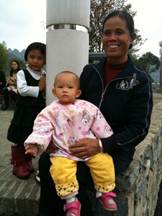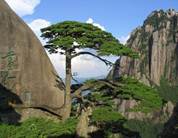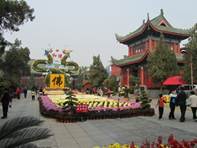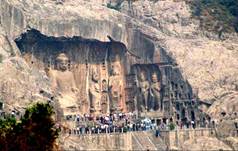News & Updates
Lotus - A trusted name in family travel
Henan Province
The name of the province Henan comes from its geographic location. Henan means 'the south of the river', indicating that Henan lies south of China's Yellow River. This area became one of the earliest developed regions in the country and has a long history as a political and cultural center.
History
 Of China’s seven ancient capitals, three are in Henan: Luoyang, Kaifeng, and Anyang. Henan has contained the capitals of 200 empires during its history which spans more than 20 dynasties. This long and rich history has left over 1.3 million ancient relics in several key sites such as the Peiligang Culture Site which dates back 7,000 years. Agricultural production began in Henan more than four thousand years ago and today Henan’s strongest industries are agriculture and energy. Three of ancient China's four great inventions: the compass, paper-making, and gunpowder, originated in Henan.
Of China’s seven ancient capitals, three are in Henan: Luoyang, Kaifeng, and Anyang. Henan has contained the capitals of 200 empires during its history which spans more than 20 dynasties. This long and rich history has left over 1.3 million ancient relics in several key sites such as the Peiligang Culture Site which dates back 7,000 years. Agricultural production began in Henan more than four thousand years ago and today Henan’s strongest industries are agriculture and energy. Three of ancient China's four great inventions: the compass, paper-making, and gunpowder, originated in Henan.
People
 Currently, the majority of the people live in rural areas with the greatest concentration in the East. The province has roughly 100 million people, mainly consisting of ethnic groups of Han, Hui, Mongolia, and Manchu. Henan became China’s most populous province in the late 1990s, after Chonqing municipality was separated from the Sichuan province.
Currently, the majority of the people live in rural areas with the greatest concentration in the East. The province has roughly 100 million people, mainly consisting of ethnic groups of Han, Hui, Mongolia, and Manchu. Henan became China’s most populous province in the late 1990s, after Chonqing municipality was separated from the Sichuan province.
There was considerable movement of rural people into towns during agricultural collectivization and the Great Leap Forward. This move to the cities has continued, although the overall population lives in rural areas. In the eastern plains area, villages are typically close to each other and in the mountainous areas; there is further distances between villages. Houses are made mainly of mud-plastered walls and thatched roofs. Henan is now one of China’s largest tobacco producers and its output of coal and petroleum holds an important role in China’s development.
Politics
Today, Henan has a less pivotal role in governing affairs, than in the past. The province was strongly impacted by  political conflict during the Cultural Revolution. During much of that time it was governed by a provincial Revolutionary Committee. The Revolutionary Committee was replaced in 1980 by the People’s Government, which is the administrative arm of the People’s Congress.
political conflict during the Cultural Revolution. During much of that time it was governed by a provincial Revolutionary Committee. The Revolutionary Committee was replaced in 1980 by the People’s Government, which is the administrative arm of the People’s Congress.
Today, the People’s Congress, acts largely through its Standing Committee, which is an organ of the state. Its powers include enacting legislation, implementing state policies, and approving provincial economic plans and budgets. Its members are elected by the People’s Congress at the next lower administrative level, and it in turn elects the members of the People’s Government.
Food / Culture / Life
Local food specialties in Henan include:
- Liyu Beimian (Carp Covered with Baked Noodles in Sweet and Sour Sauce)
- Luoyang Shuixi (Feast Characterized by Soup in Luoyang Style)
- Songgong Miangao (Pastry Originating From the Imperial Palace of the Song Dynasty)
Traditional Specialty Products from Henan include:
- Embroidery from Kaifeng
- Maojian Tea in Xinyang
- Dukang Wine in Luoyang
Key Sites and Cities:
 Since its imperial days Kaifeng has remained a key cultural and educational center in Henan, although it has come to share that role with Zhengzhou, the capital city of the province. During the Song Dynasty (roughly 900 years ago), the city was the most prosperous city in the world. Kaifeng boasts a one thousand year old pagoda as well as an ancient Jewish settlement, which has relics and traceable history today.
Since its imperial days Kaifeng has remained a key cultural and educational center in Henan, although it has come to share that role with Zhengzhou, the capital city of the province. During the Song Dynasty (roughly 900 years ago), the city was the most prosperous city in the world. Kaifeng boasts a one thousand year old pagoda as well as an ancient Jewish settlement, which has relics and traceable history today.
Key places of interest include Songshan Mountain, which is known for its rugged beauty and bonsai-like looking trees. There is also the Longmen Grottoes, and the Shaolin Temple in Dengfeng.
 Longmen Grottoes is famous for its grand treasure trove of Chinese Buddhist statues and contains over 90,000 small and large Buddhist carved statues and is near the city of Luoyang. This remarkable attraction is regarded as the "Treasure land of engraved art". First sculpted and chiseled around 493 AD when the capital of the Northern Wei Dynasty (386-534) was moved from Datong City to Luoyang, the grottoes house an awe-inspiring collection of sculpted Buddha and other religious subjects. Here is a link to UNESCO’s more detailed information: Longmen Grottoes
Longmen Grottoes is famous for its grand treasure trove of Chinese Buddhist statues and contains over 90,000 small and large Buddhist carved statues and is near the city of Luoyang. This remarkable attraction is regarded as the "Treasure land of engraved art". First sculpted and chiseled around 493 AD when the capital of the Northern Wei Dynasty (386-534) was moved from Datong City to Luoyang, the grottoes house an awe-inspiring collection of sculpted Buddha and other religious subjects. Here is a link to UNESCO’s more detailed information: Longmen Grottoes
Henan also holds an important place in the martial arts world, as the birth place of Shaolin Kung Fu, which originated at Shaolin Temple, and has a dedicated following. Shaolin Temple is renowned as a result of its first-class martial arts training. Performances are conducted daily and visitors may get to explore the training and practice room of Jet Li.
These are a few highlights from Henan that more comprise an important part of China's culture, both past and present. Since Henan is known for its hot and rainy summers, springtime is often an ideal time to travel and visit Henan province. Regardless of when one does plan a visit, Henan is a great place to see. It is clear that one can easily gain insightful glimpses into this splendid, ancient culture from time spent there.
Sources:
Encyclopedia Britannica, Wikipedia , China Culture .org